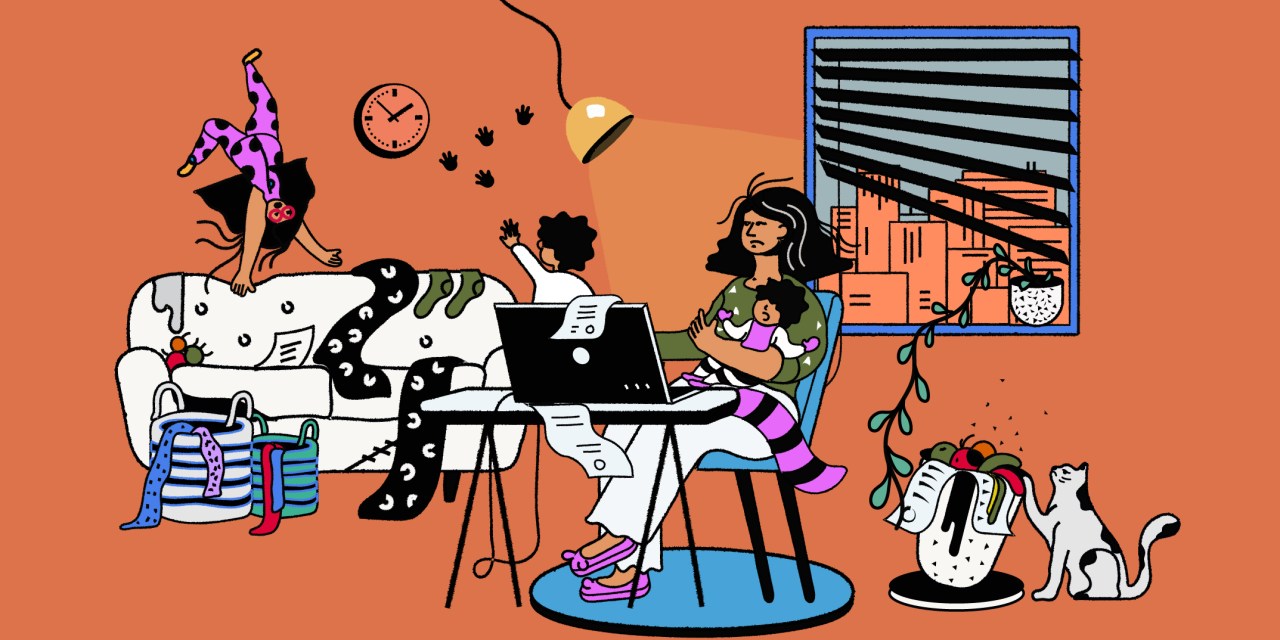‘It took the heat out of people’s situations’: Agencies provide mental health support for employees’ kids

Next week parents across the U.K. will breathe a collective sigh of relief as schools begin to reopen after the nation’s third lockdown.
Families have been under acute pressure to meet work and financial commitments while also homeschooling their kids through various rolling lockdowns over the last year. Meanwhile, kids have suffered their own anxieties and mental health issues as a result of the pandemic.
To address this, agencies have invested extensively in mental health and wellbeing support programs over the last few years, yet all were left scrambling to find new ways to support exhausted parents with difficult family situations, through another bout of school closures in 2021.
“When lockdown three happened [in January 2021], we were all just a bit stunned and panic stricken, thinking how are we going to do this again?” said Nancy Lengthorn, managing partner and head of inclusion and belonging at MediaCom U.K.
Guidance from schools was patchy: Some students were provided with full days of assignments and classes while others were left with just a few hours a week of activities. But many young people have also suffered from extreme anxiety as a result of the pandemic and being isolated from their friends and wider family. That’s manifested in a range of issues from agoraphobia, eating disorders, depression and insomnia, according to various parents spoken to for this article.
“The worry parents have for the mental health of their kids is huge,” said Ewen MacPherson, group chief people officer at Havas U.K. “Parents are potentially struggling with their own mental health, but the impact the pandemic has had on the mental health of their children has compounded that anxiety.”
With no other support available, agencies like Havas and MediaCom tried to fill the gap. That meant providing new support structures, access to psychologists, peer-to-peer communities and distractions for their kids also.
Havas provided a bunch of sessions where parents could have individual coaching from experts on how to balance homeschooling and work, as well as advice on how to talk to their kids about mental health issues and ensure healthy diets are maintained.
Meanwhile, kids were given a range of weekly activities to keep them entertained and distracted. That comprised weekly magic lessons where they were taught a new magic trick each Monday, or for the older kids they had “magic of books” sessions to improve their reading. The week also featured after-school arts clubs, meditation sessions, kids happy hours that coincided with adult happy hours and Disney themed costume dance parties every Friday.
Leaders are often looked to for stability at times of uncertainty, but they also need their own outlet for stress. For Havas, that took the form of weekly venting sessions called “Wednesday Whinge” — where team leaders could meet for a candid, cathartic rant with peers.
“We were conscious that our team leaders and department heads, most of whom are parents, were carrying a heavy load — they were expected to remain upbeat and put on a brave face for their teams, whilst also dealing with the ups and downs of lockdown life themselves,” said MacPherson. “The Wednesday Whinge gave that group an opportunity to come together in a safe space with peers and share the pain.”
Other agencies have provided increased flexibility for those who needed to adjust either the hours they worked or the workload they would typically take on, in order to be able to manage burnout. Publicis Media agency Digitas provided regular digital creative challenges for kids and awarded Amazon vouchers to the best. Digitas, Starcom and Spark agencies set up Teams meetings for parents to discuss homeschooling tips and discuss common issues.
MediaCom was among those that was particularly proactive in providing additional support for stressed-out parents during the third lockdown.
When MediaCom leadership met to discuss the best approach, the conversation became emotionally charged because it had become apparent certain people were not going to get through this third lockdown without some kind of support with their kids, said Lengthorn.
To get a better understanding of what people were worried about, across all levels of the business, the agency held “safe space” sessions, which invited parents to talk about their situation and their anxieties and fears. “The perennial theme for everyone was guilt, guilt, guilt,” said Lengthorn. “Guilt that they weren’t doing their job well or looking after their children properly.”
Seeing how candid senior leaders were about their own mental health issues and challenges with home schooling during that sessions helped alleviate that guilt. People were relieved to hear they weren’t alone in their struggle to handle the situation — that there was a similar chaos going on behind the polished and in-control veneer senior leaders exuded during town halls and conference calls, said Lengthorn.
“It unlocked something,” she added. “It unleashed better conversations between senior leadership and the teams, we all need to hear that humanity. It took the heat of some people’s situations,” she added.
After hearing some of the issues on these calls, MediaCom ran sessions specifically for parents who have kids with neurodiverse conditions like attention deficit hyperactivity disorder and dyslexia. Kids were also taught how to use digital special aids provided by Microsoft, to help complete their work. Now a peer-to-peer support network of parents with kids with additional needs has formed organically and will continue after the reopening of schools on March 8.
